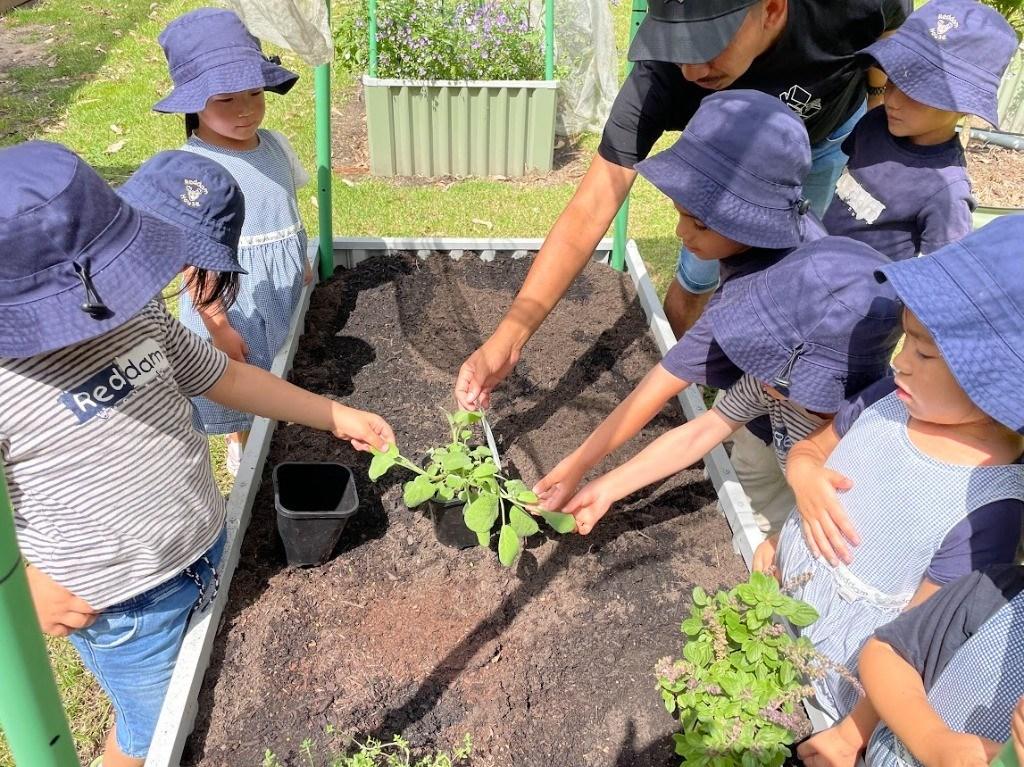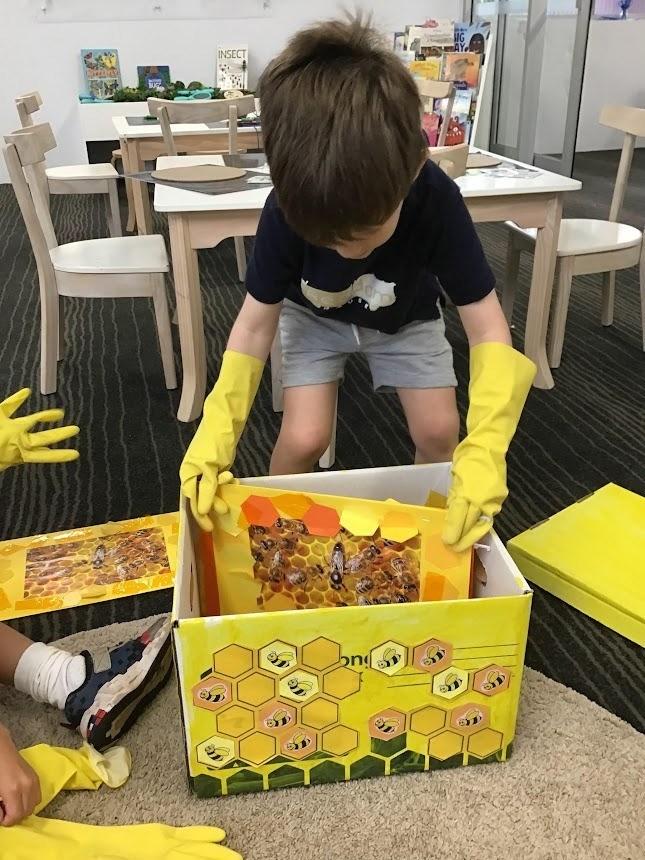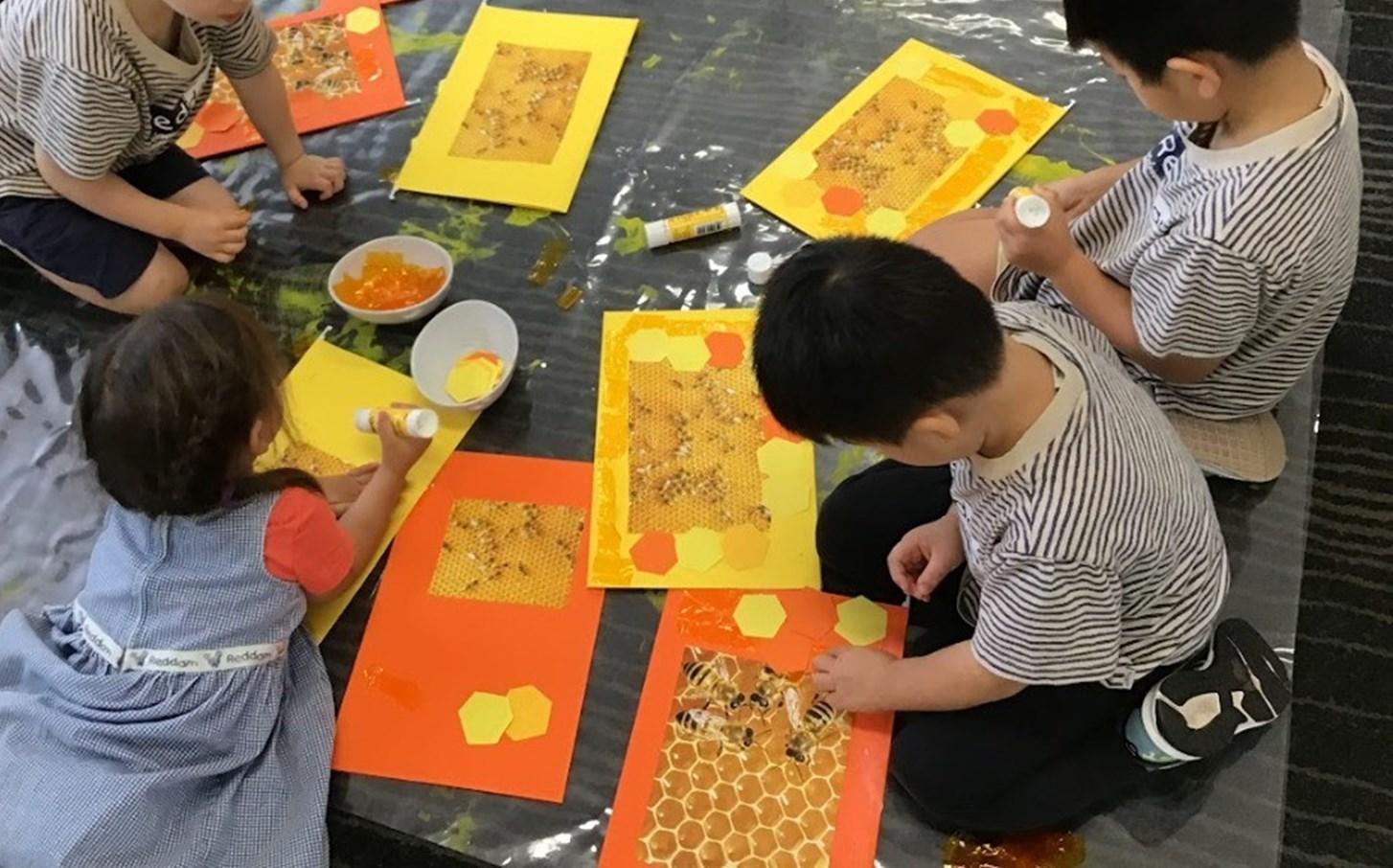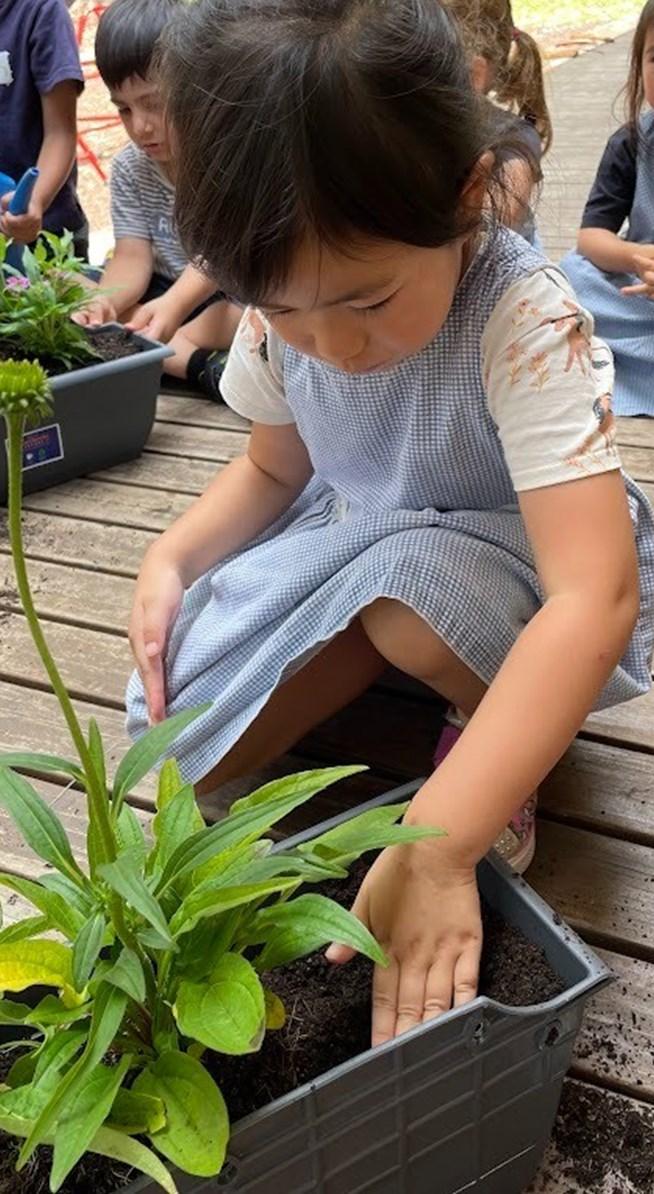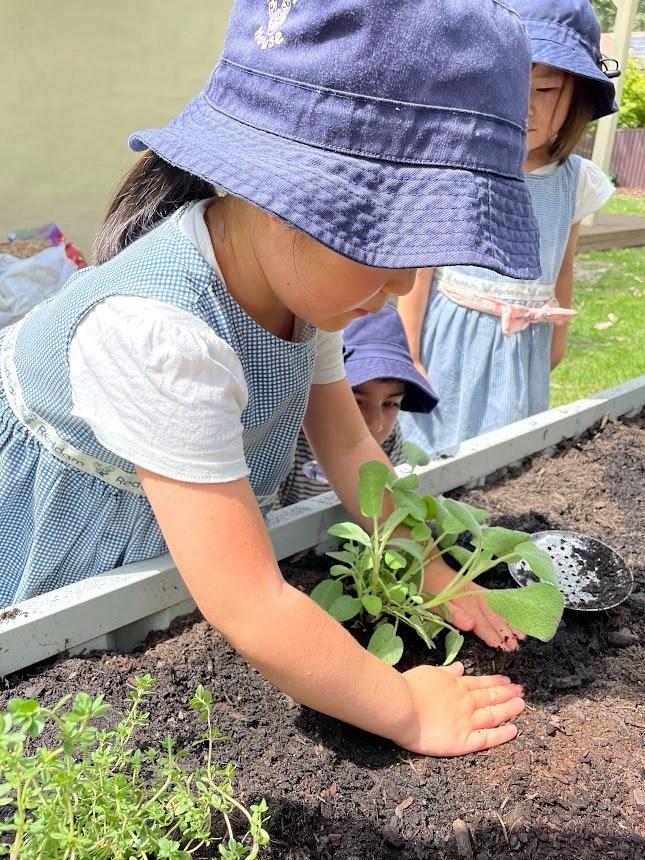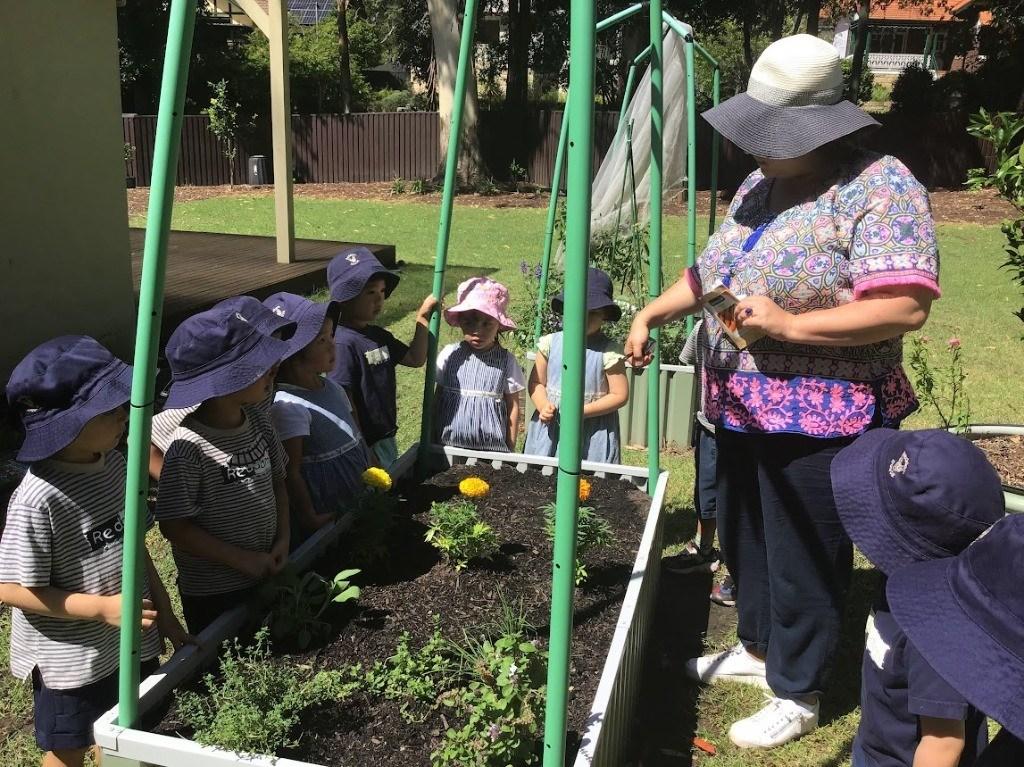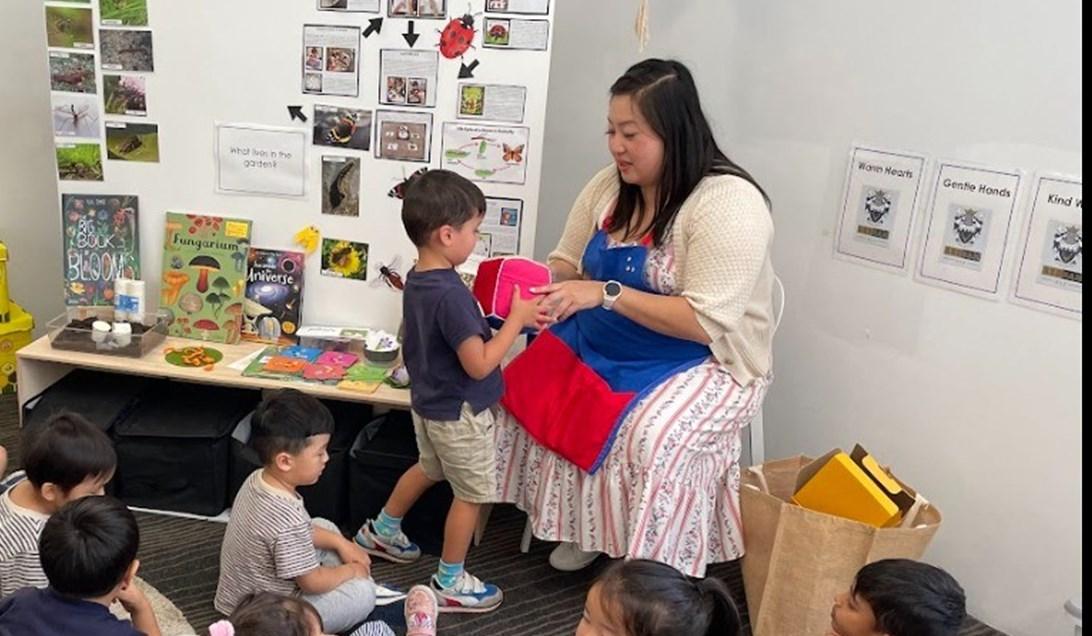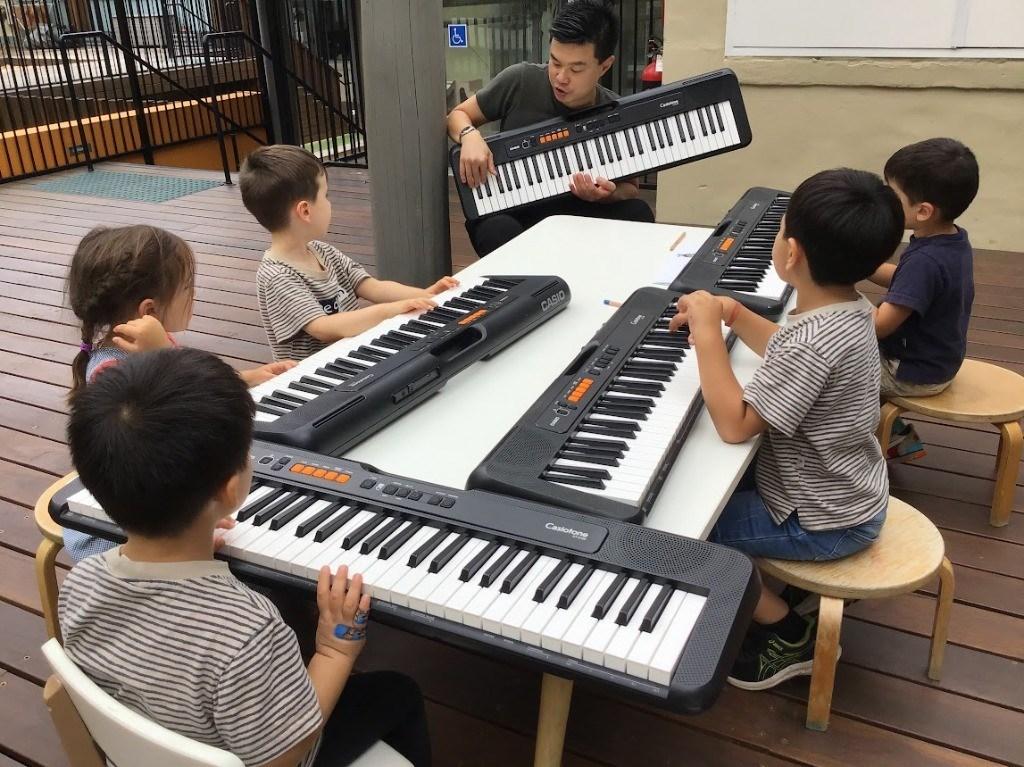REDDAM EARLY LEARNING SCHOOL
LINDFIELD NEWSLETTER

Principal’s Message
Dear Parents
17th February 2023
By Christine IrwinIt was wonderful to see so many of our families attend the parent information evening that was held at Reddam ELS Lindfield from the 6th to the 9th February 2023. The team enjoyed chatting to parents and showing our beautiful class room environments and learning areas. We hope that this was a positive experience for you all and please don’t hesitate to approach myself or the team If you have further questions or queries
Recently the team has been reflecting on how the children in our care have settled into the new year and are separating in the morning from their families into their new environment. We also understand how this can effect the family of the child and the routines at home. This can be an emotional time for not only the child but also for the rest of the family.
It is very normal for your child to experience some difficulties when settling into the school particularly if they haven't been in the care of anyone else before. It is important for families to know that all children are individual and some will settle very quickly whilst others take time and that’s ok and completely normal. We as educators understand this and as a team we have experience in assisting children to settle at their own pace.
In my own experience it is sometimes more difficult for the family if the child happily separates and says good bye without a worry. I have comforted many parents in my time who’s child was happy to go into their new class room excited to join in the experiences provided.

The team will often approach families to find out what interests the child has at home and how we can incorporate this into the arrival at school. Families are also asked to complete a “classroom information sheet” which provides the education team with information all about your child so this can be incorporated into the morning arrival routine. Many of our classrooms now have a sign in and out for the children. This encourages that routine for the children and initiates self confidence in their approach to pre literacy skills. I have noted that some of our children’s siblings are also signing themselves in. Great to see some future students getting use to the routine so early!
Other significant routine tasks for the children include putting their own bag away in their locker, placing their drink bottle on the trolley and putting sunscreen on ready for their day.
By Christine IrwinHere are a few reminders of settling your child and Family into the routine of starting arly hildhood Education care
What will help my child to settle in?
Starting early childhood education and care can be an emotional experience for both you and your child.
Children can often experience some difficulty settling into a new environment, particularly if they find it hard to separate from family or familiar caregivers.

Here are some suggestions to help support your child:
• If possible, start with shorter or fewer days then gradually increase their time spent at the service.
• Find a preferred staff member or peer that your child can be left with when you drop them off for the day..
• Inform the service about what comforts your child and discuss how you manage activities or times of the day they find unsettling. For example, does your child have a toy or blanket that helps them to settle?
• Show your child that you feel secure about leaving them at the service and that you trust the staff. Say ‘goodbye’ confidently, and reassure them that you will be back later. While it may be tempting to leave while they are engaged happily in play, it can be very distressing for your child to realise you have left without saying goodbye.
• You should feel that you can contact the service at any time to check how your child is settling. The staff should provide you with sensitive, honest feedback.
Starting blocks ACECQA
https://www.startingblocks.gov.au/
Please feel free to have a chat with our education team or myself if you have any worries or concerns about settling into Reddam ELS Lindfield . We are here to help you and your child have the smoothest transition possible and understand the emotional time it can be for everyone. You will find our team here at Reddam are extremely nurturing and understand that every child is different and they all settle with time
Looking forward to chatting soon
Christine Irwin PrincipalHello dear families
Here we are another week completed and goodness how much fun have the children been having enjoying their focus on Transport? During the week we have provided the children with various sizes, lengths and styles of tubes for them to experiment putting cars down and seeing what happens. This was a completely new experience for some of the children who did not have a complete understanding of the process. But after watching the other children and the demonstration the educators provided, they quickly understood and were delighted when they could accomplish this action themselves. This experience demonstrated just how our babies are becoming confident learners and enjoy the process of attempting new actions.
We have also been enjoying more fun on our track on the floor of our room. Miss Betty played the music "When the ants go marching" and encouraged the children to follow her marching and stomping around our little track. It is great to watch the interactions between the children as they follow each other around the track using those wonderful gross motors skills to stamp and stomp. In fact our littles ones are starting to come together beautifully, following routines and watching and copying each other especially during our group times and even while washing hands. Everyone's confidence is growing and therefore they are partaking more and more in the group times and various experiences.
We are now in full swing with our speciality classes and the children are enjoying a variety of lessons including music, playball and Mandarin. We also run our own art class for the children in which we create a weekly art work and joint art experiences. This week’s art was to use paint, bells and balls to create out stunning art pieces. The balls represented the wheels and motion of the vehicles and the bells represented noise. The children were then encouraged to jiggle and juggle the container making the bells and balls round around. We have also started a new joint art project and owing to our Transport theme we are making a car from a cardboard box. We will begin with painting the box then decorate it with wheels, headlights, and maybe even fashion a steering wheel. Once completed the children will be able to take rides in our very own car we created.

Wishing all our families a wonderful weekend
Heather, Carina, Jing and Betty
Stage 1R:






This week the children have been very interested in diggers and construction! Throughout the week we read lots of stories about diggers including ‘Dig, Dump, Roll' by Sally Sutton and ‘The Little Yellow Digger' by Betty & Alan Gilderdale. As we turned each page we were asked to guess the digger based on the sound of, and a fact about, each vehicle. We saw a bulldozer, a digger, a dump truck, a roller and a concrete mixer. The children were eager to hear the name of each vehicle and enthusiastically repeated the names back.
On Monday we walked down to the park to see a crane that had been set up in the building site at the end of our street. The children were all captivated by the big white crane. We watched it turn around, stretch up high, pick up a load of wood, and listened to the engine roaring away.
We walked to the park holding our emergency evacuation rope so we are practising all the time. We are definitely getting more confident in holding the rope together as we leave the service and understanding our role of working together and following our teachers to the park.
Throughout our environment the children have been provided with a variety of vehicles. This week their developing vocabulary has been evident as they name each vehicle they can see. Last week we saw a concrete truck, so this week in our sensory tray the children have been exploring ‘Concrete Ooblek’. They have loved using the diggers to scoop and pour the sticky mixture.
In our construction corner the children have been busy exploring motion, and cause and effect as they roll cars down ramps and slopes. We have been counting down, ‘1, 2, 3, Go!’ and ‘Ready, Set, Go’ before pushing our cars down the ramps.

It was great to welcome our Music teacher Alan to Reddam Lindfield. The children in 1E were amazed at Alans keyboard skills and where even more excited to have a turn themselves. We look forward to Alan’s lesson next week
Thanks for a great week!
Stage 1E:






Stage 2R
By Vivian TruongThis week our focused on family. Home is a place where we can be ourselves and are accepted for who we are. Learning about families allows children to connect with who they are, feel pride in themselves and their families, while also setting down a foundation for understanding others.

Throughout the week, our little learners were invited to share their family photos with their friends and teachers. This opportunity offered 2R the chance to talk about the people most important to them and also helped them realise that family is something we all have in common. Teachers showed them the importance of family and values of parents by practical actions which were enlightening 2R about the importance of family. The children were invited to engage and use their imagination to manipulate magic sand to make homes using wooden blocks and wooden people. This activity encouraged social and emotional growth. The use of loose parts also helped children to expand upon their ideas and renew their interests in block play. With ‘All the people we love’ sensory bins, 2R practised family member names and their roles and learned the values of parents in their lives. Art of the week involved our little artists painting love hearts for their loved-ones.
Children should be taught responsibility as a part of family values. They should know that they play an important role in the matters of the family and must carry out whatever they are asked to do responsibly. Because family is also about cooking together and cooking requires everyone to have a responsibility, this week our 2R's family participated in a variety of cooking experiences. These experiences helped children practice some basic maths concepts and build language skills, self-confidence and laid the foundation for healthy eating habits.
If we sow the seeds of the importance of family in children’s lives and nurture the familial bonds by leading the way, setting examples with lots of patience and love, the children will bloom and smile through life as strong and sensible individuals. A good family results in strong, mature, balanced and caring individuals who are very relevant and much
Stage 2R:






Musical movements support children to confidently explore their body ability and willingly engage with physical and social development. In the second week, our focus Our Favourite Songs integrated 2E children’s favourite songs into each learning experience. We sang and viewed a range of wonderful songbooks. One of our mostliked nursery rhythms was a silly songbook ‘Cow in the Kitchen’ by H June Crebbin & Katharine McEwen.
The children enjoy the afternoon's music group time. Music is a vital part of enhancing literacy, numeracy, and language in a joyful way. At the other table, the children are invited to play with two current favourite songs 'Cows in the Kitchen' and 'Five Little Speckle Frogs'. The frog bond small world contained slippery, slimy water beads that reflected frogs' eggs or slimy skins found on the tables. With scoopers and a bowl, our clever children created imaginative play scenarios as they manipulate the water beads and frog figurines while singing 'Five Little Speckled Frogs' and counting how many frogs jumped into the bond. Moreover, the children can visit the animals in the paddock. A sensory tray filled with lentils and another filled with oats enticed our children to practice their scooping and transferring skills. This helped the children engage in imaginative play with the animal figurines.
The highlights of the week were climbing spiderwebs and going on a big walk around the school. As we discussed sun safety daily, the children showed great concern for their sun safety on a hot day and checked if they had hats on. Gross motor activities are important to physical activities like walking, running, throwing, lifting, kicking, etc. Gross motor abilities also form the basis for fine motor skills and relate to body awareness, reaction speed, balance, and strength. Practising gross motor skills daily helps the children to understand their bodies' abilities so which enhances their confidence to approach risk play situations. As the spiderweb rope is a flexible material that moves when the children use it, it constantly challenges them as they climb, and every action on the part of the structure has a reaction in another part.
When we visited the garden, our friends were so surprised to see flowers in multiple colours. Miss Mia asked, "Which flower do you like?". Charlie went, "The orange one.", then Riley, "the purple", Zoe contributed, "the white one." The children spent a quality amount of time looking and observing the differences between flowers and luckily we saw butterflies. Our little friends likely build positive attachments and respectful relationships with the world through natural affiliation and planting activities with significant adults who share interests in nature with them. Spending time in nature also fosters the children's attention skills and relaxation. Taking a nature walk and trying to observe and investigate different types of plants, insects, and animals enhanced our little friends’ sense of wonder and curiosity, observational skills, and questioning skills. What a wonderful week of learning! Wishing you an amazing weekend!
Mia, Chloe, Shandie, Alisha and Yali
"Music gives a soul to the universe, wings to the mind, flight to the imagination, and life to everything." - Plato
Stage 2E:









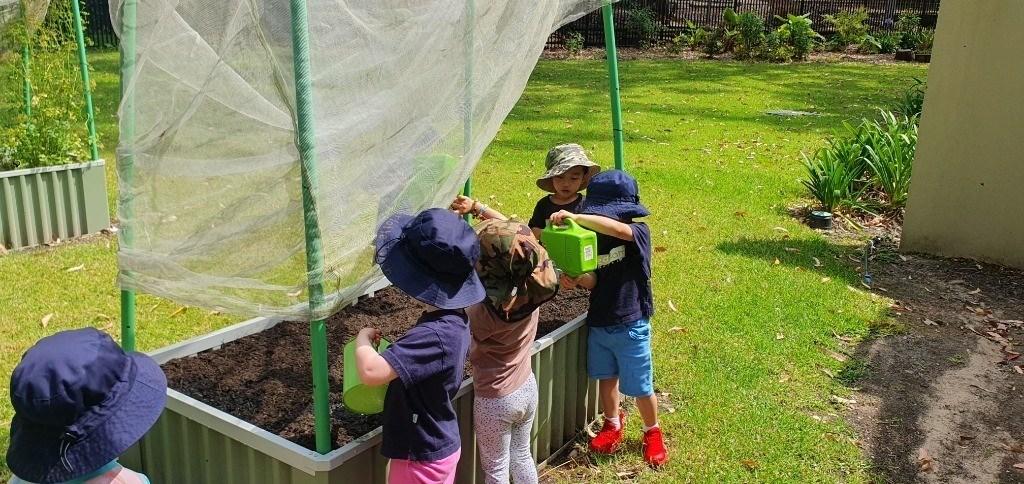
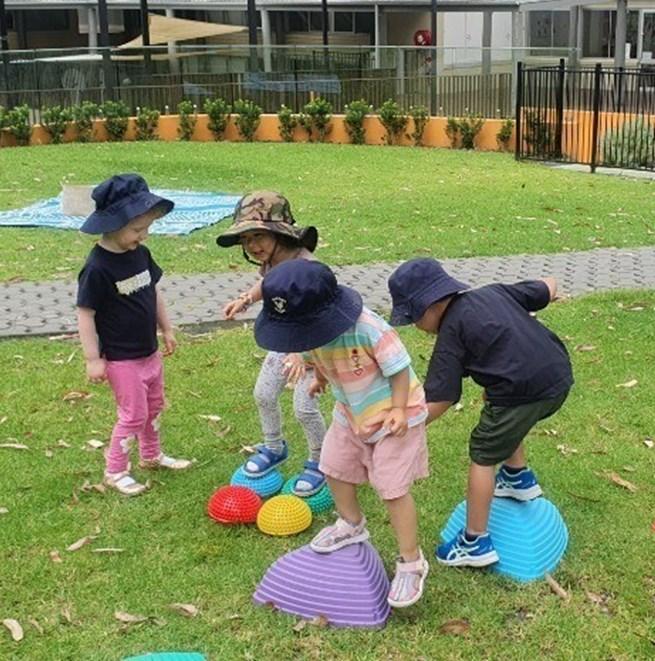
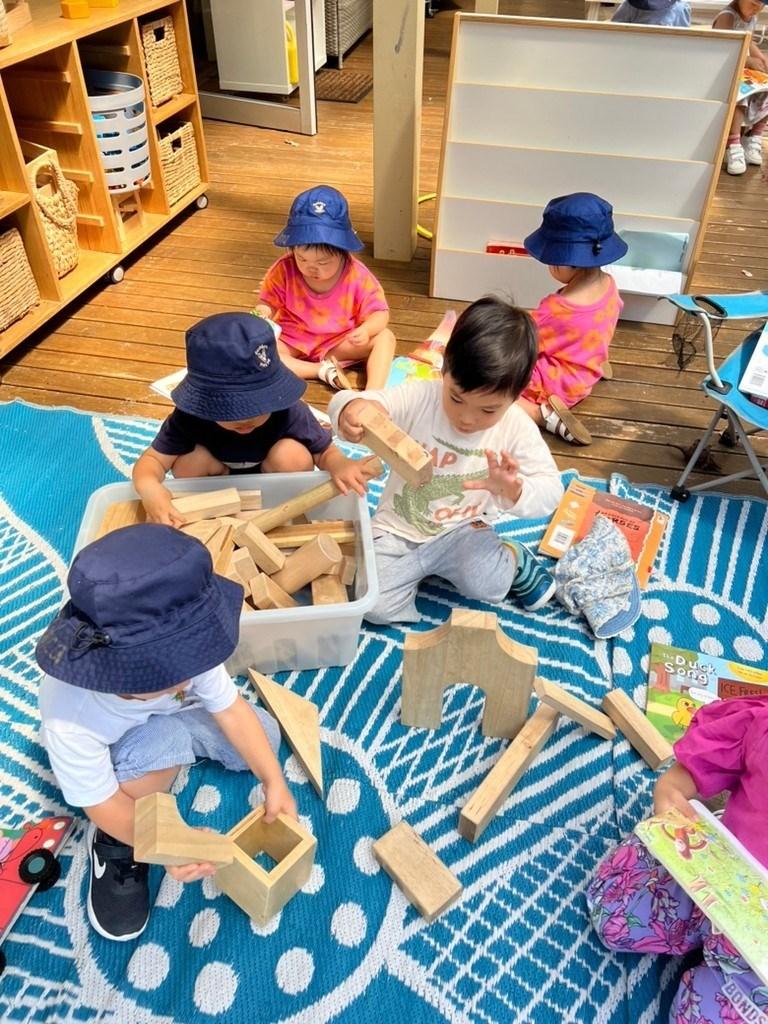
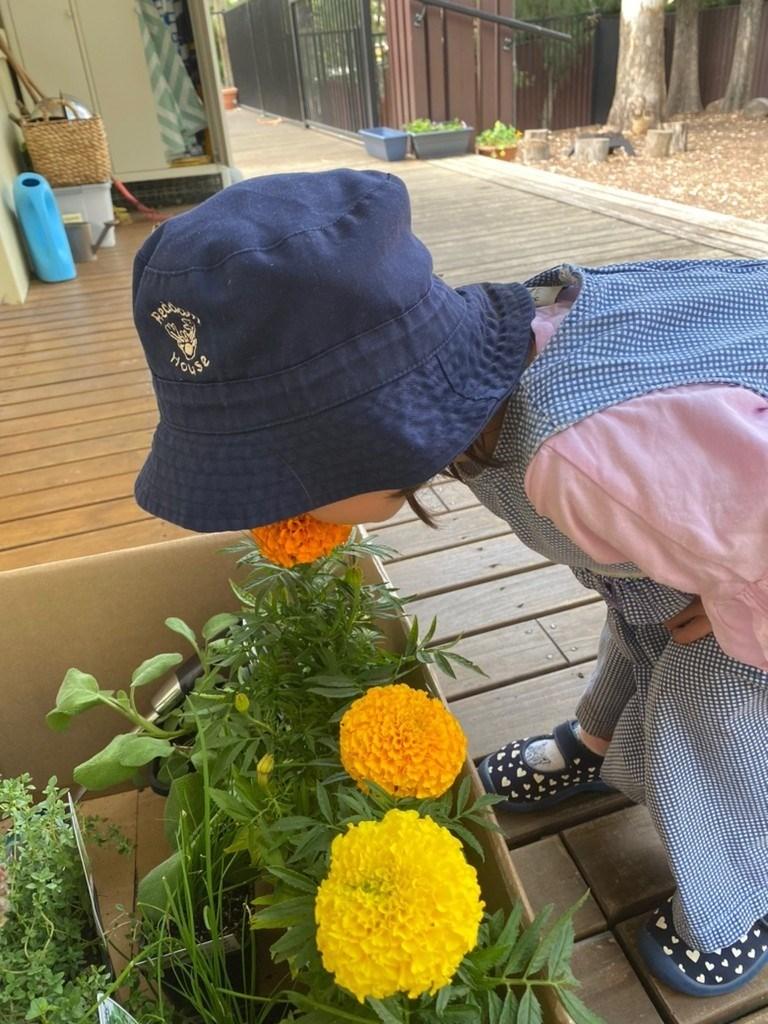


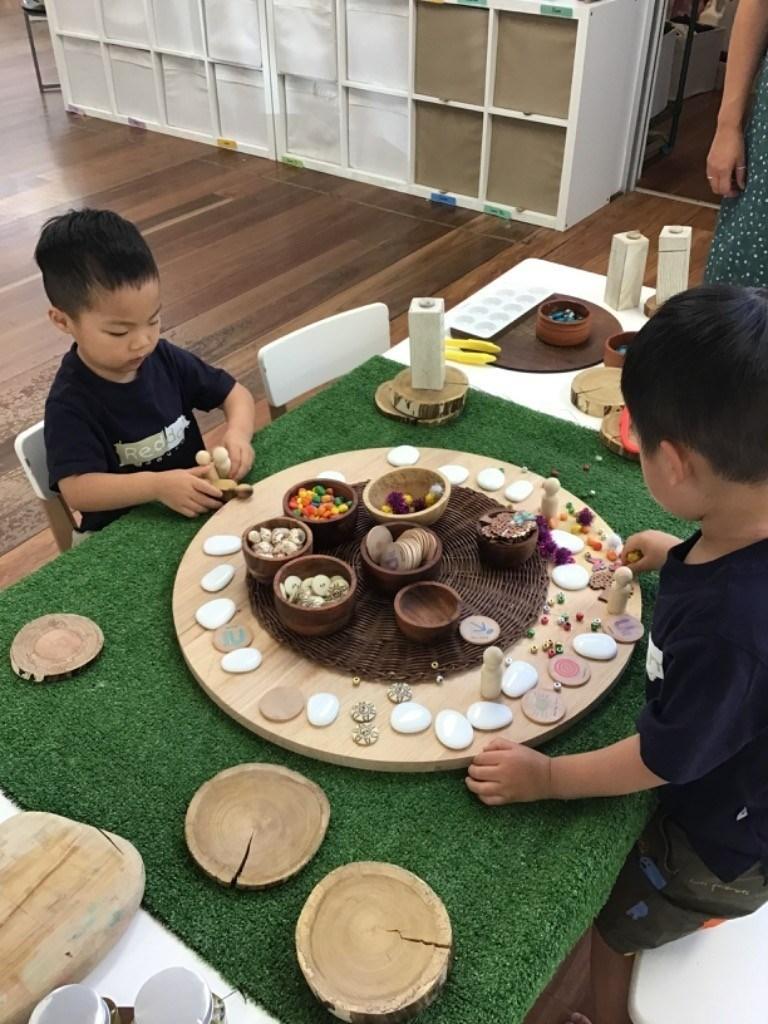
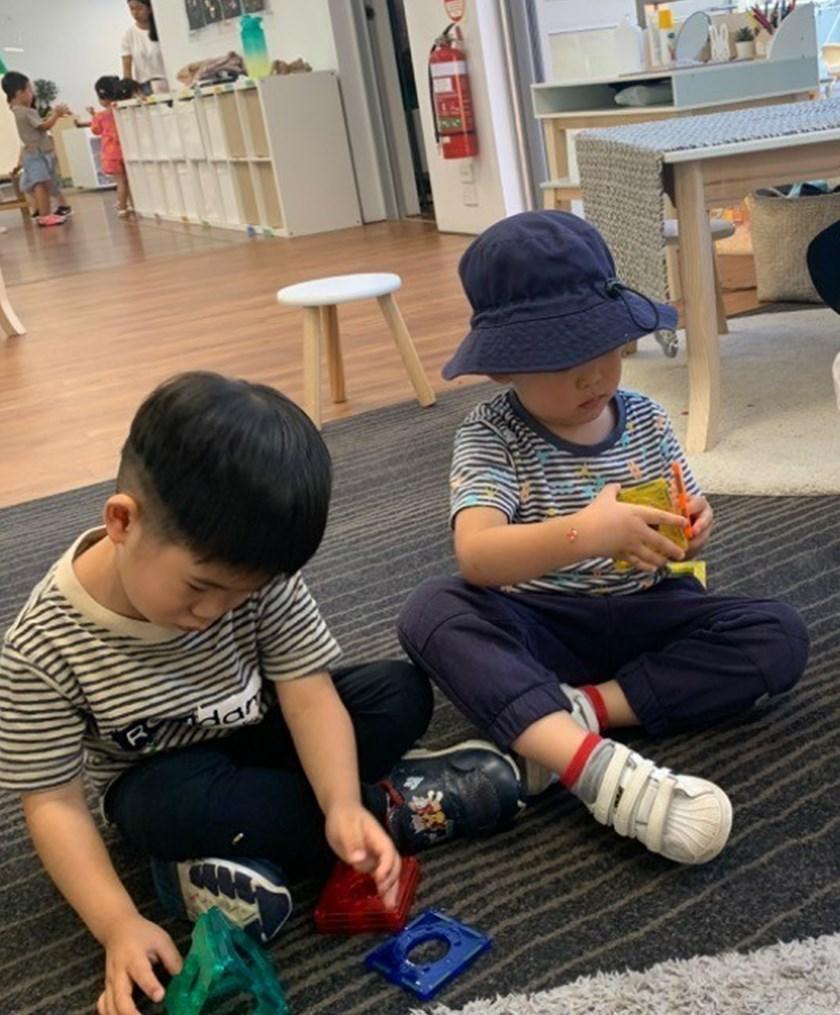
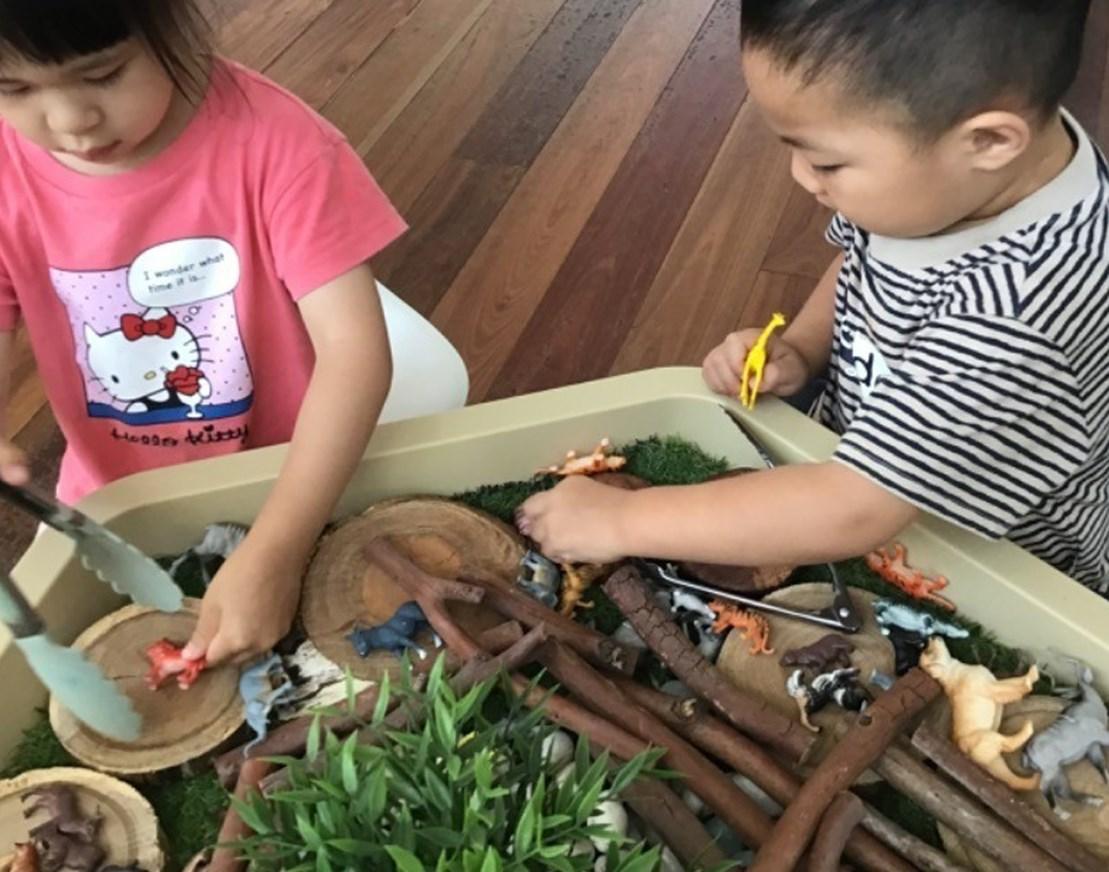
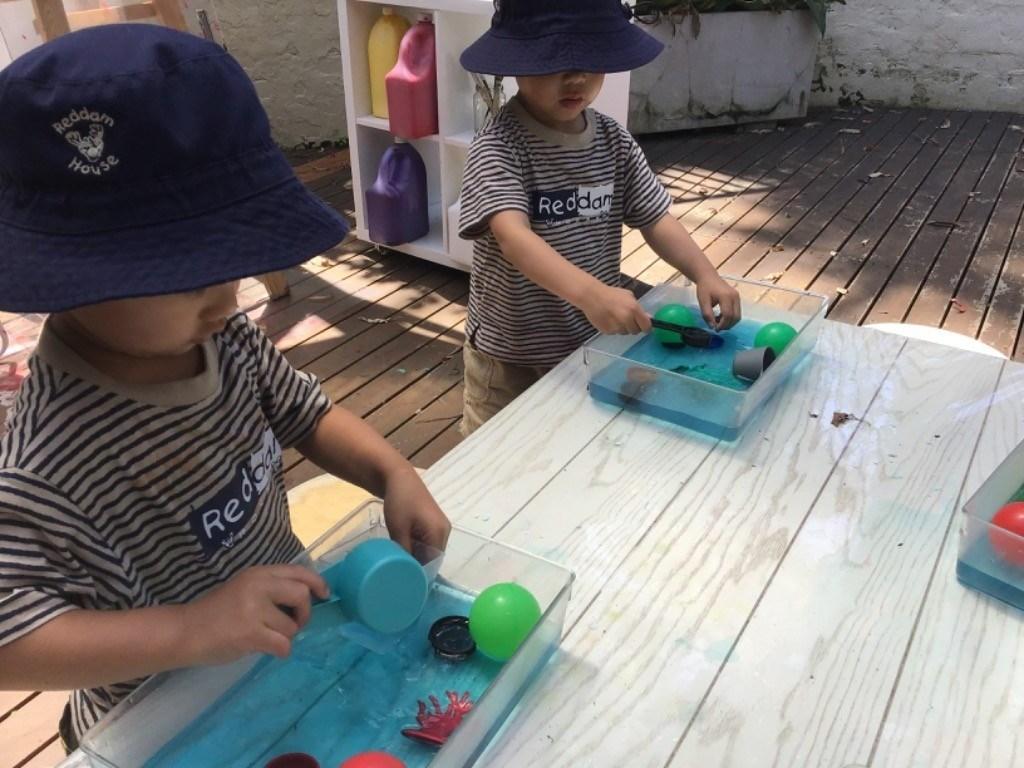

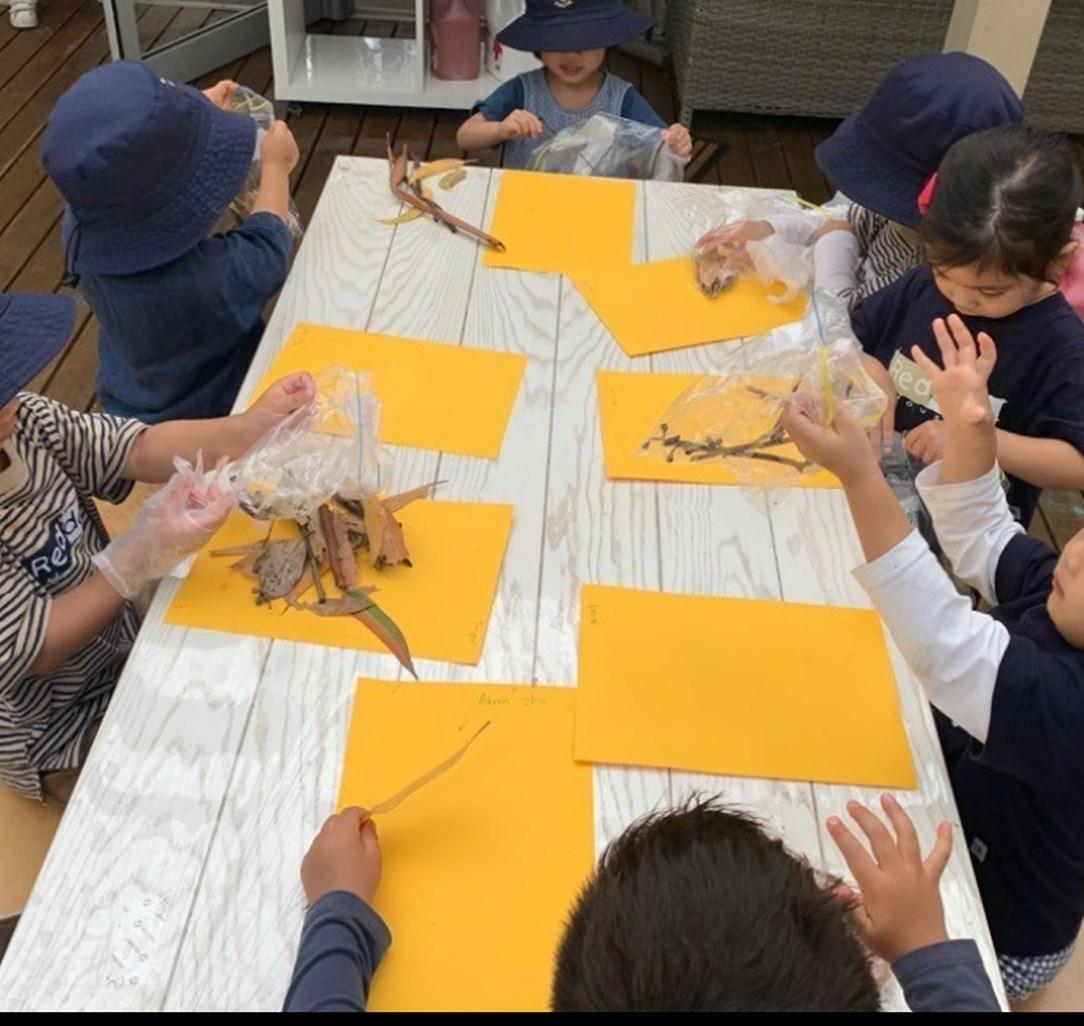
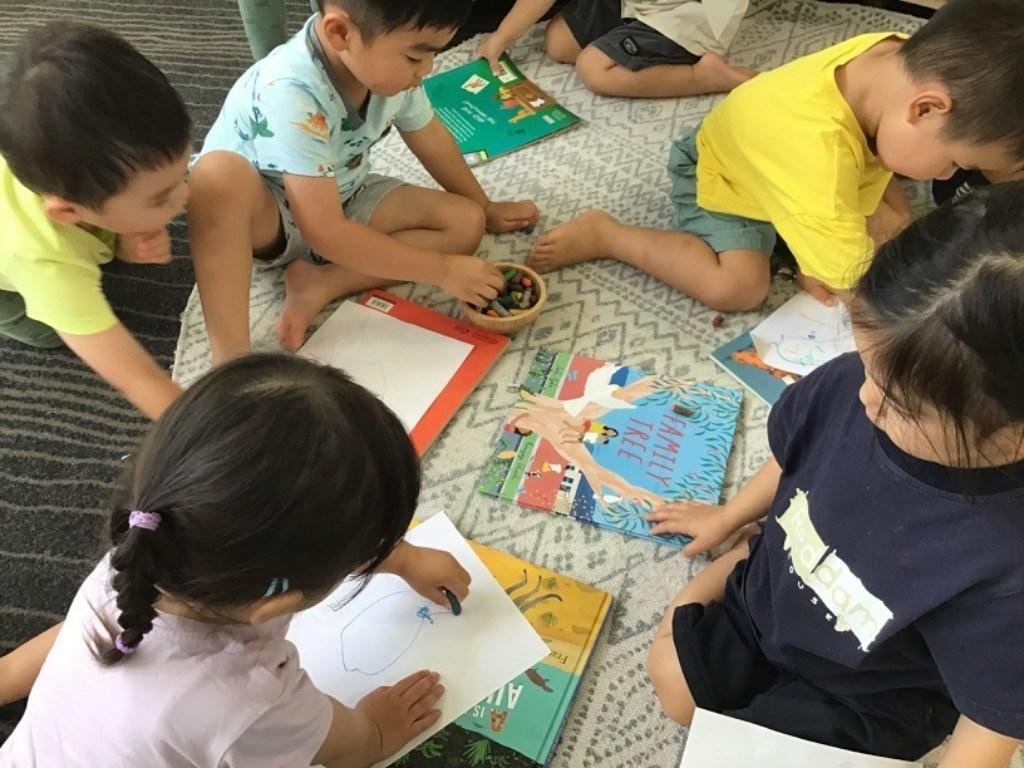
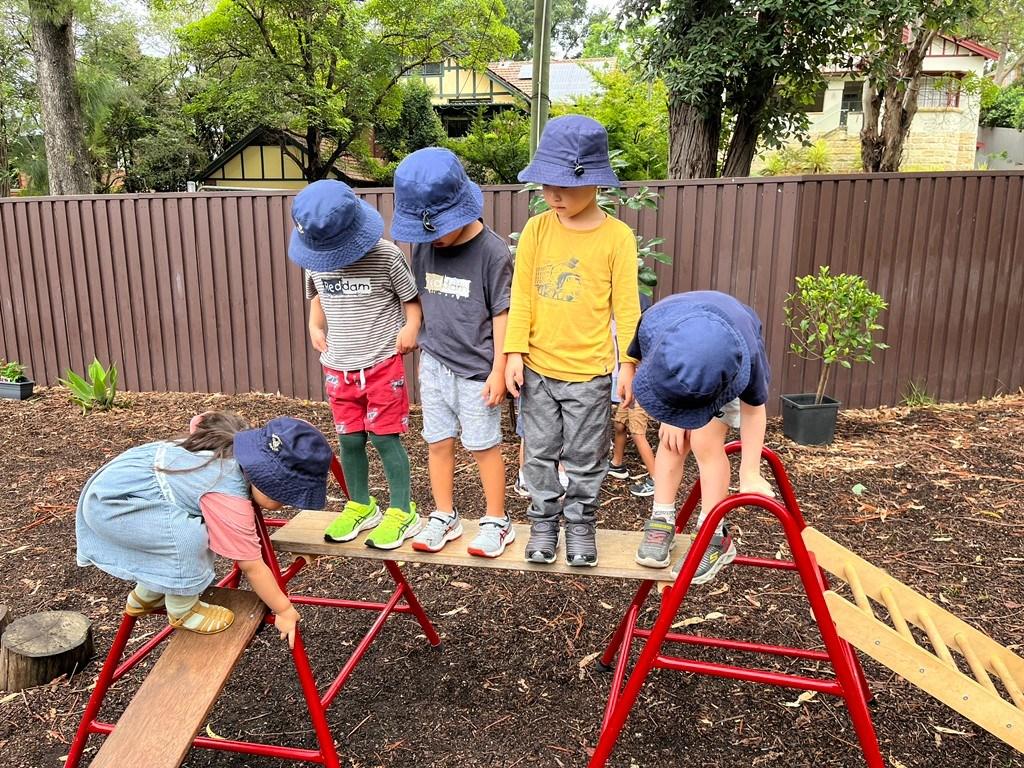

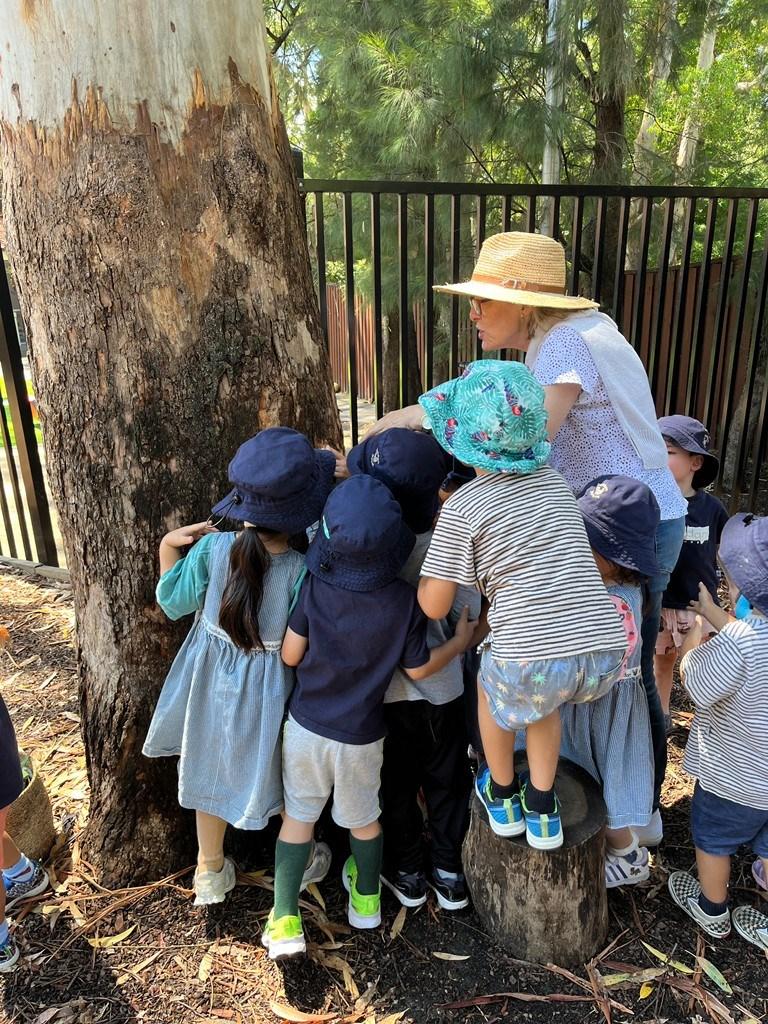
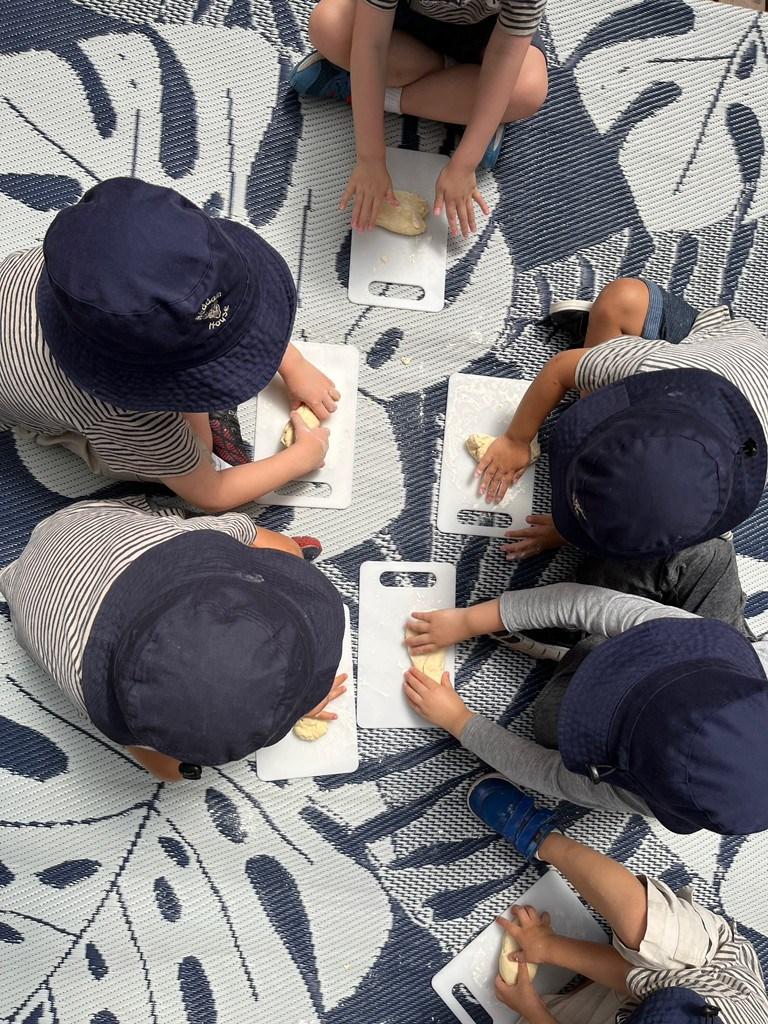
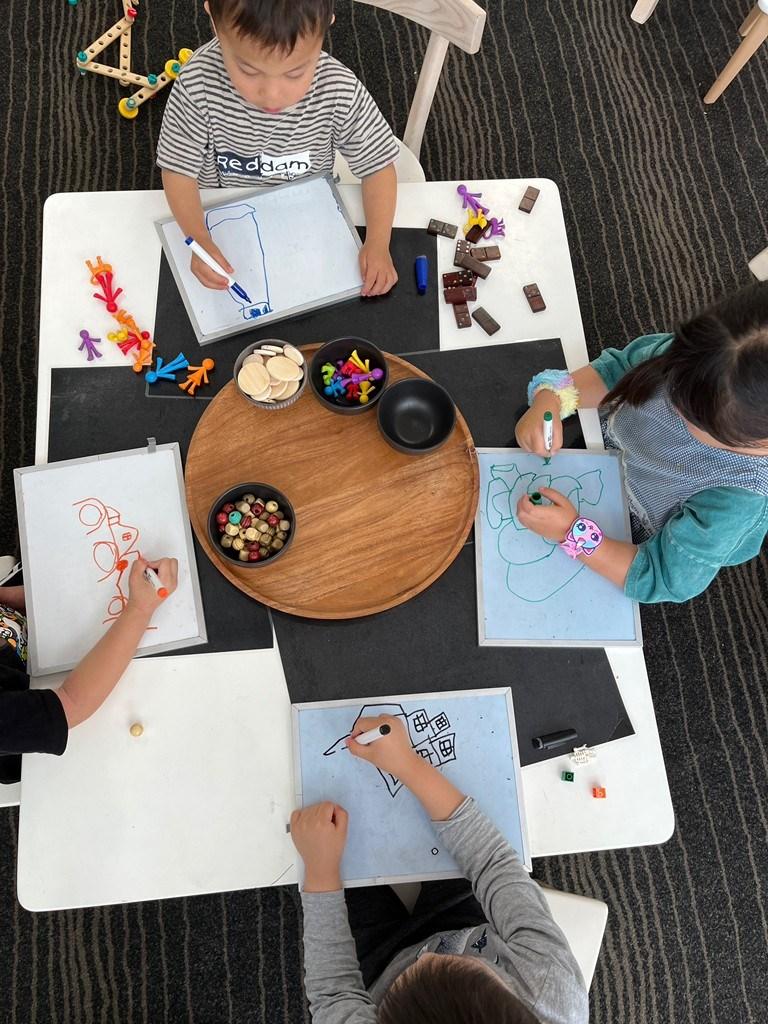
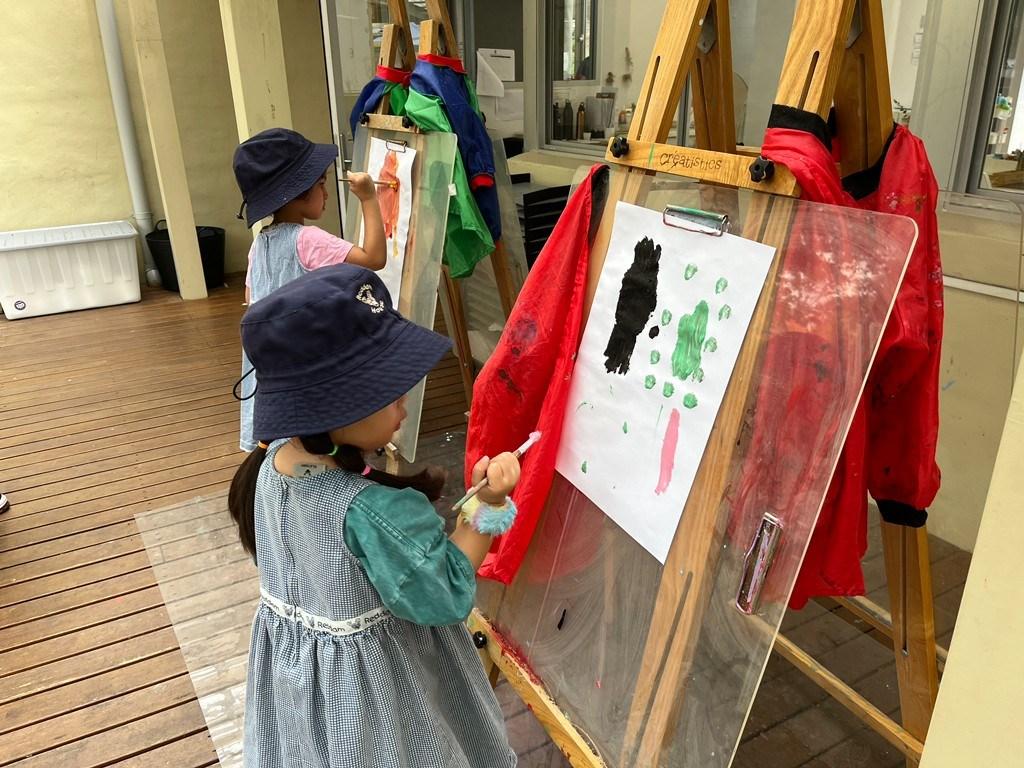
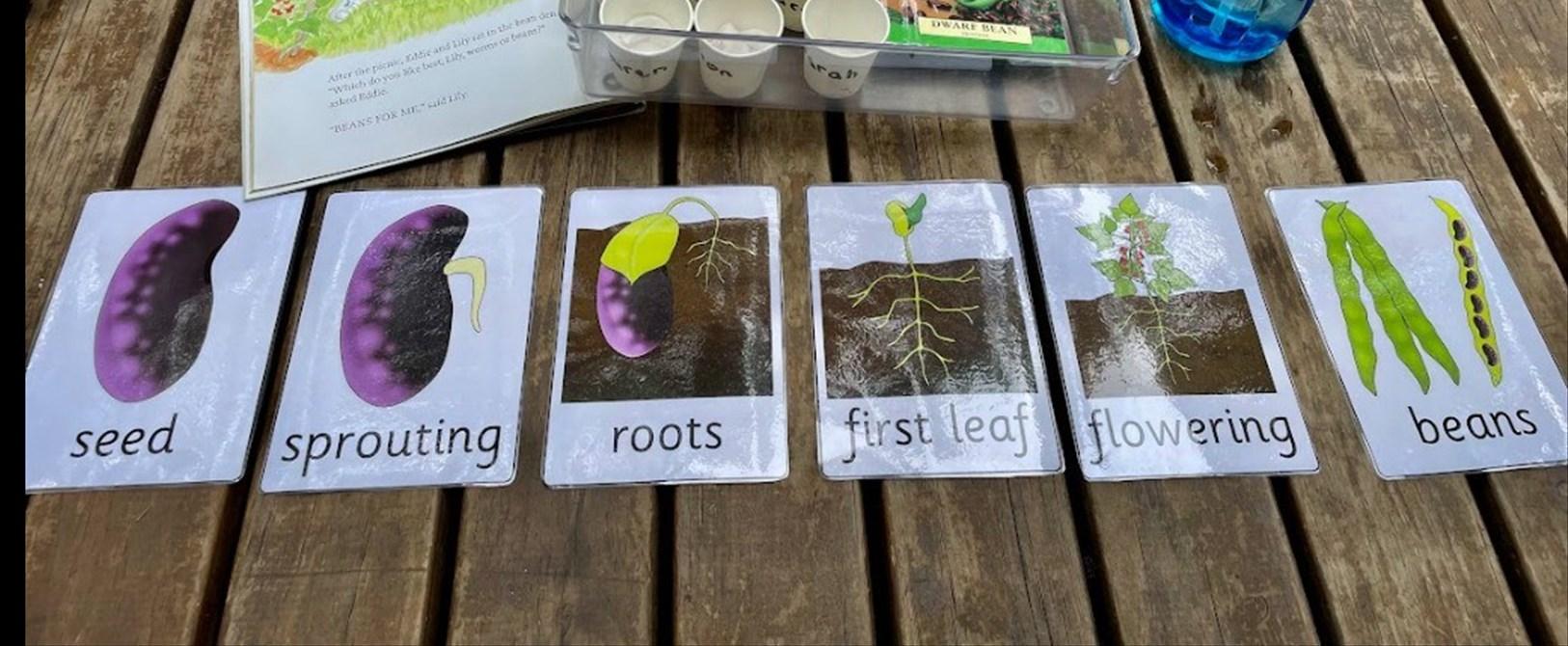 Lauren, Rowel and Rebecca
Lauren, Rowel and Rebecca
